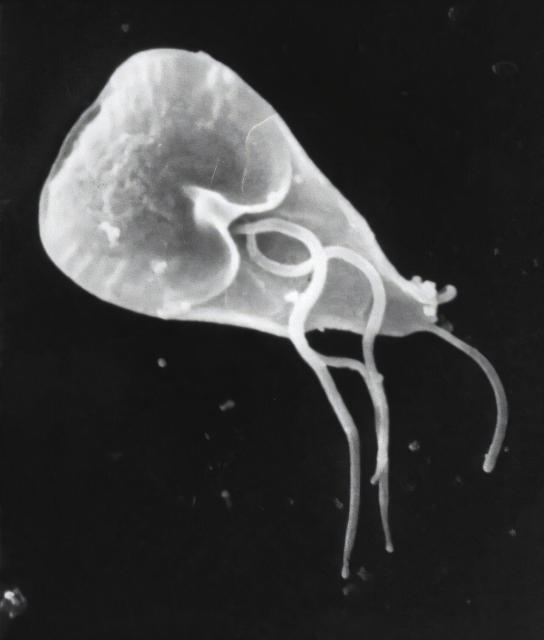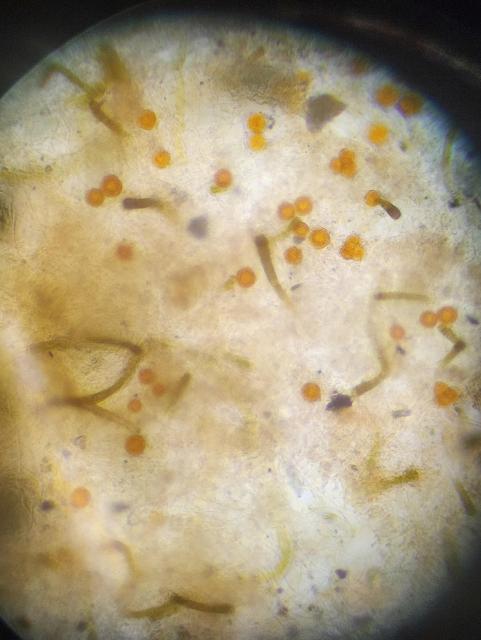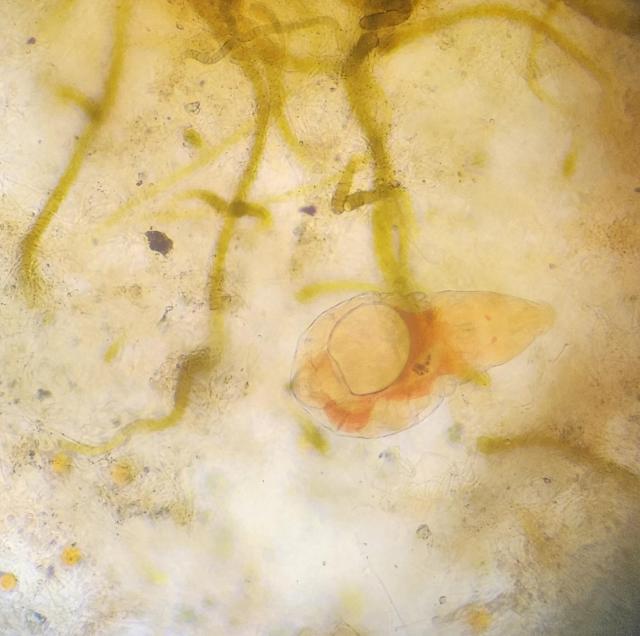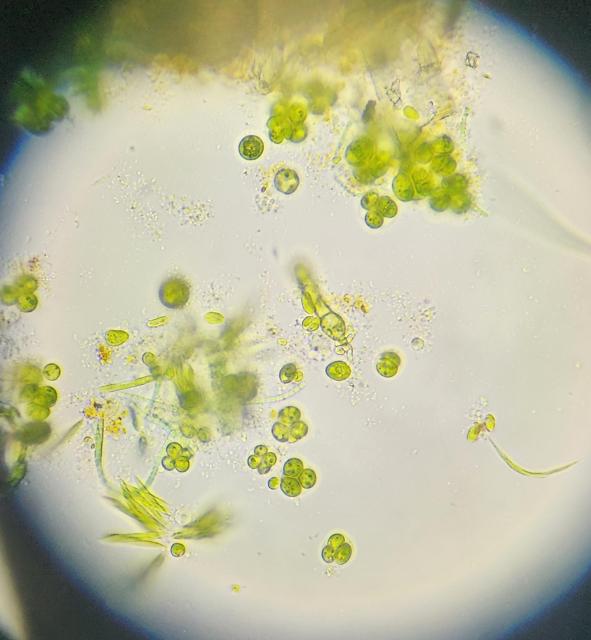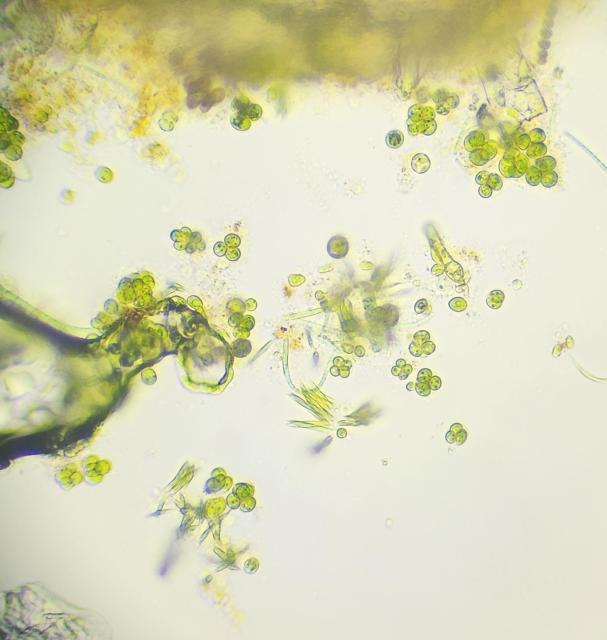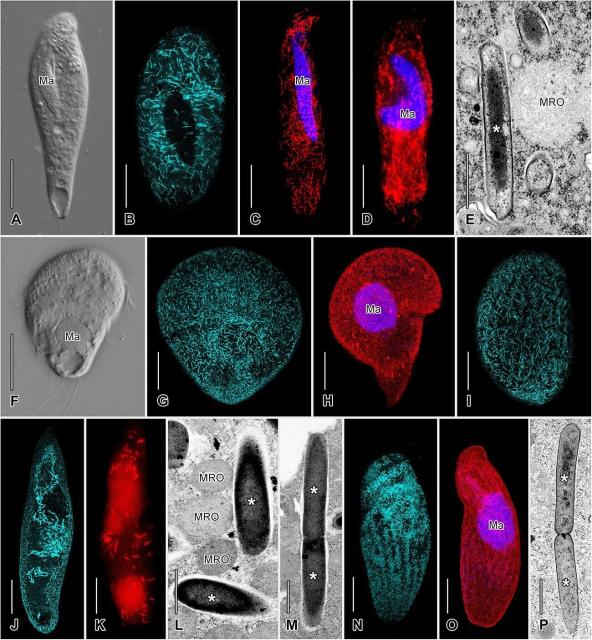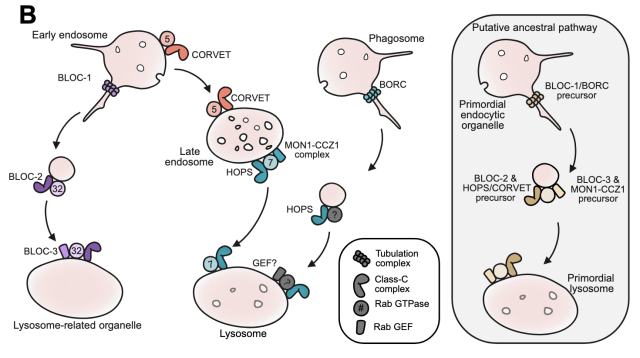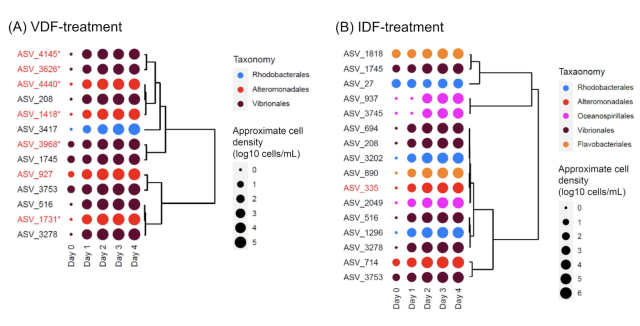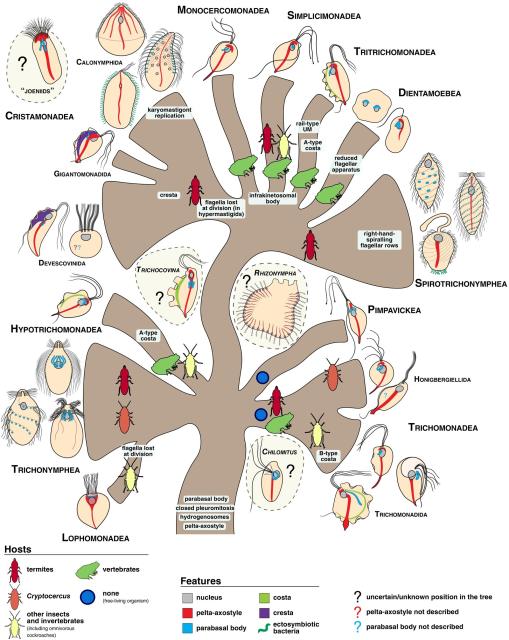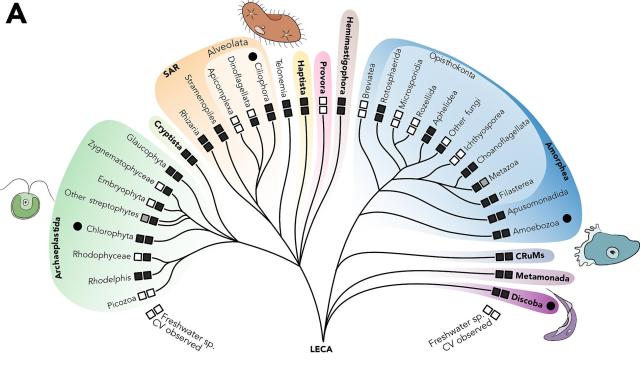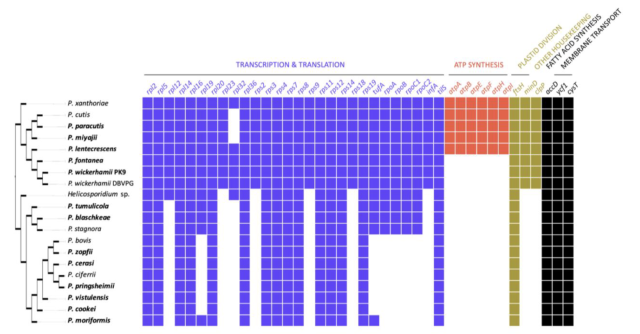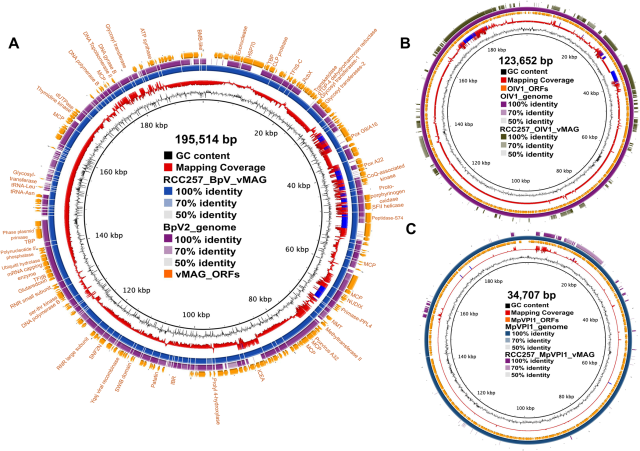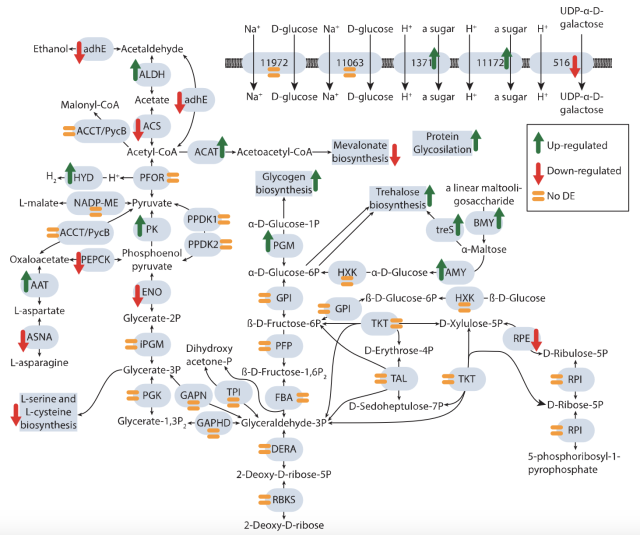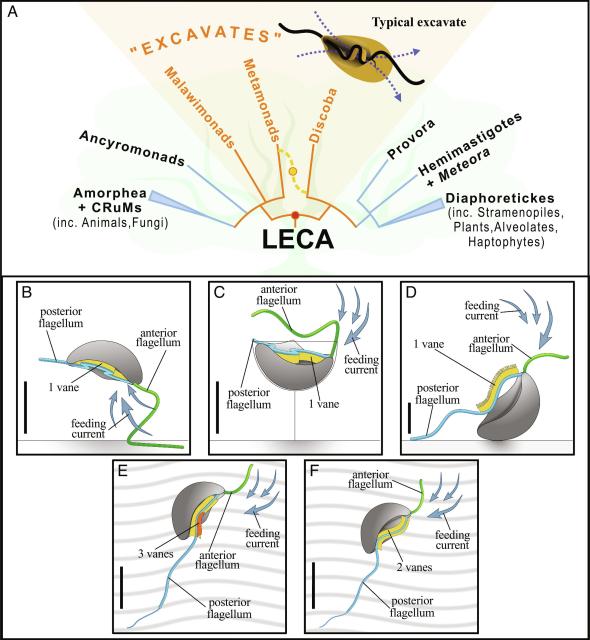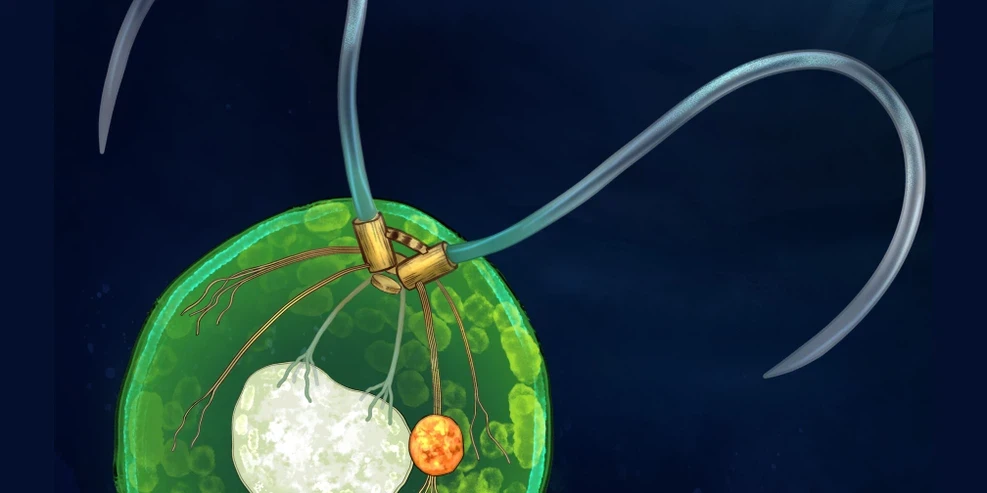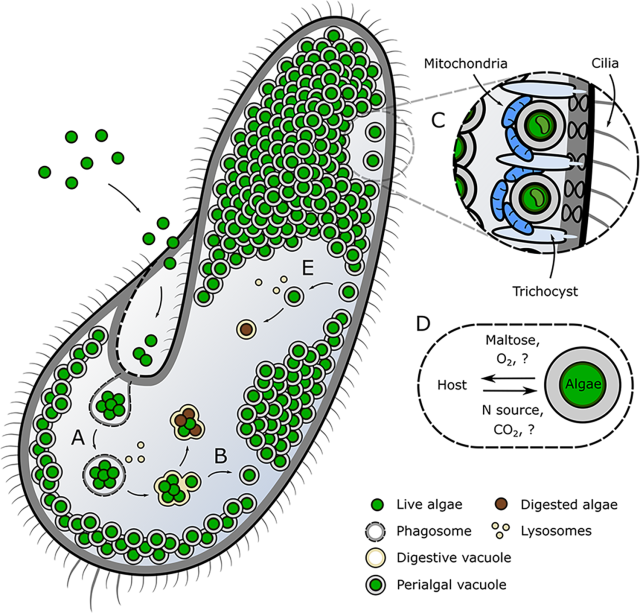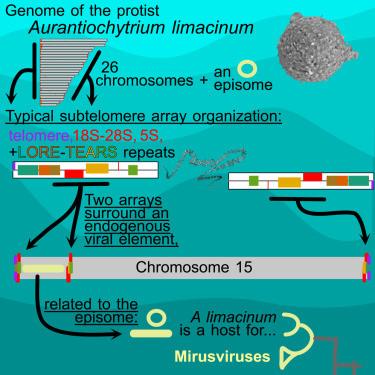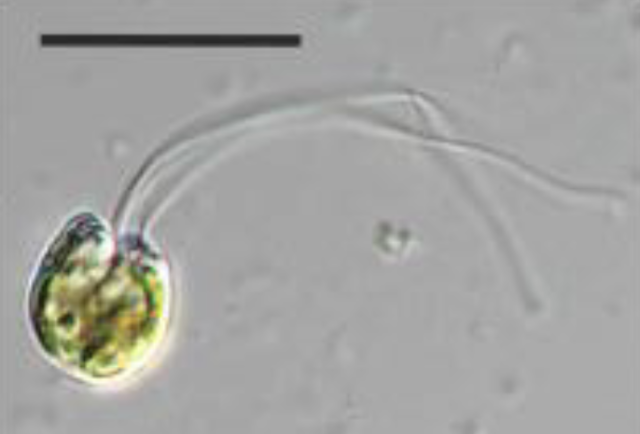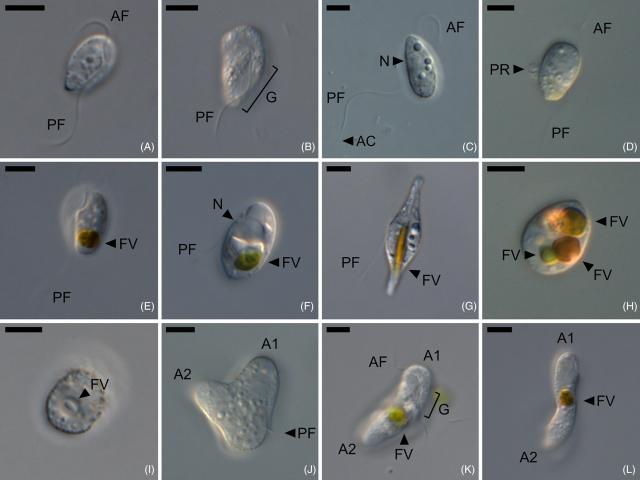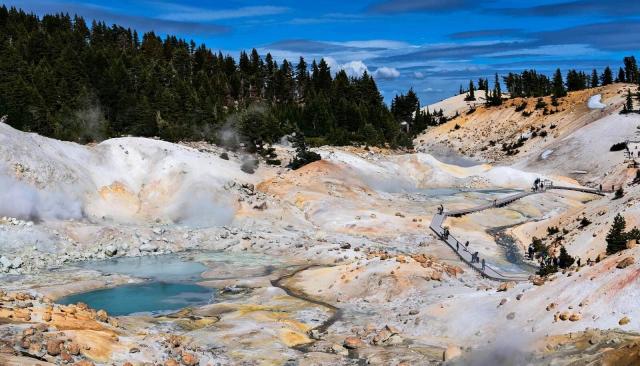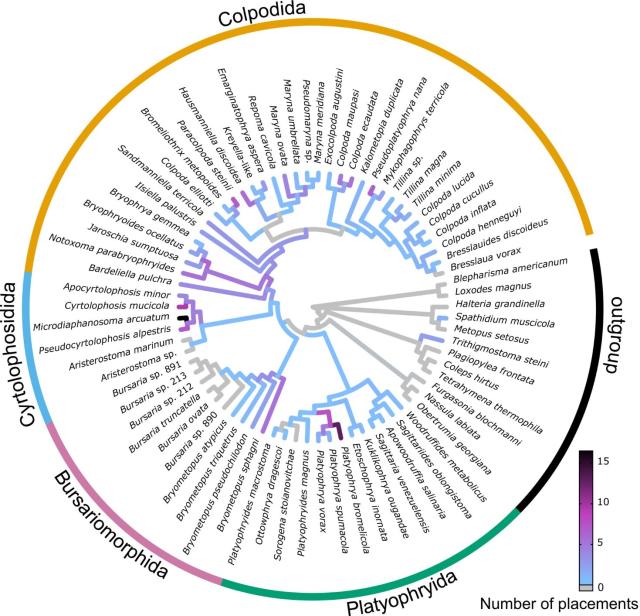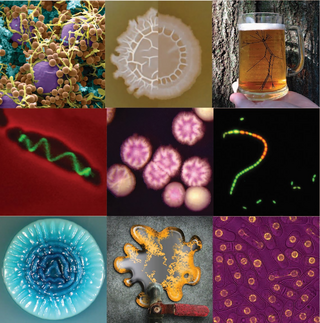Search
Items tagged with: protists
How a #parasite gave up sex to find more hosts—and why its victory won't last phys.org/news/2026-01-parasite…
Host range expansion of asexual parasite can be explained by loss of adaptions in Muller’s Ratchet nature.com/articles/s41467-025…
"an asexual lineage of #Giardia managed to infect a wider range of hosts than its sexual ancestor... at a cost. Because these #parasites don't exchange genetic material, harmful mutations build up over time, leading to eventual collapse"
#Protists #Microbes #Evolution
How a parasite 'gave up sex' to find more hosts—and why its victory won't last
Australian researchers have uncovered how a particular strain of a diarrhea-causing parasite managed to infect more animal species, offering new insights into how parasitic infections emerge and spread to people.Walter and Eliza Hall Institute (Phys.org)
I believe I found some Haematococcus pluvialis in my birdbath, which apparently is where they commonly occur due to the high sunlight. The red astaxanthin pigments are UV protective. It looked like the rotifers were preferentially eating them.
For the giant virus and Euglena fans out there:
Giant endogenous viral elements in the genome of the model protist Euglena gracilis reveal past interactions with giant viruses
Giant viruses integrate into the genomes of money protists. Our latest study adds the model protist Euglena to the list
"Giant endogenous viral elements in the genome of the model protist Euglena gracilis reveal past interactions with giant viruses"
biorxiv.org/content/10.1101/20…
#viruses #protists #microbiology #genomics

Giant endogenous viral elements in the genome of the model protist Euglena gracilis reveal past interactions with giant viruses
Giant viruses in the phylum Nucleocytoviricota have increasingly been found integrated into the genomes of diverse eukaryotes. Here we report 8 Giant Endogenous Viral Elements (GEVEs) in the genome of the microalgae Euglena gracilis.bioRxiv
Wonderful discovery for #protists #independentresearch #microscopy #microbiology folks. Check out a new zine called "Amoeba Discovery":
stefanluketa.com/amoeba-discov…
I never thought very much about protists/amoebas, and reading this volume was a fascinating introduction to what seems to be an understudied field.
Now I'm wondering how I might isolate and sequence some interesting samples!
My at-home algal cultivation hobby is going well. I am surprised thst soil samples are the best for growing new green algae - more so than pond water.
Giant virus encodes key piece of protein-making machinery of cellular life
"Viruses are integral to the functioning of ocean ecosystems, influencing biological productivity, shifting community interactions, and driving evolutionary change,"
phys.org/news/2024-12-giant-vi…
#viruses #microbiology #GiantViruses #protists

Giant virus encodes key piece of protein-making machinery of cellular life
Researchers at the University of Hawai'i at Mānoa have discovered that a virus, FloV-SA2, encodes one of the proteins needed to make ribosomes, the central engines in all cells that translate genetic information into proteins, the building blocks of …Marcie Grabowski (Phys.org)
Advanced genetic techniques and #microscopy offer new insights into anaerobic ciliate and methanogen #symbiosis phys.org/news/2024-10-advanced…
Methanogenic #symbionts of anaerobic #ciliates are host and habitat specific academic.oup.com/ismej/article… #ISEPpapers by @joro
"This study provides a clearer understanding of how anaerobic ciliates have evolved a mix transmission mode to both maintain and replace their symbionts over time"
#microbes #protists #bacteria #archaea #methanogenesis #biology
Advanced genetic techniques and microscopy offer new insights into anaerobic ciliate and methanogen symbiosis
A recent study has uncovered critical details about the association between anaerobic ciliates and methanogenic archaea, a relationship that has fascinated scientists for over decades.Charles University (Phys.org)
New #ISEPpapers! Evolutionary origins of the lysosome-related organelle sorting machinery reveal ancient homology in post-endosome trafficking pathways: Kiran More et al. pnas.org/doi/10.1073/pnas.2403…
#protists #microbes #CellBiology #eukaryogenesis #biology #organelles
New #ISEPpapers #preprint! Viral infection to the raphidophycean alga #Heterosigma akashiwo affects both intracellular organic matter composition and dynamics of a coastal prokaryotic community biorxiv.org/content/10.1101/20…
#protists #algae #viruses #microbes #biology
Viral infection to the raphidophycean alga Heterosigma akashiwo affects both intracellular organic matter composition and dynamics of a coastal prokaryotic community
Marine microalgae play a crucial role in marine ecosystem by supplying dissolved organic matter to heterotrophic prokaryotes, which mediate the microbial loop.bioRxiv
New #ISEPpapers! Updated classification of the phylum Parabasalia onlinelibrary.wiley.com/doi/fu…
"Most are harmless or beneficial gut #symbionts of #animals, but some have turned into #parasites in other body compartments, the most notorious example being #Trichomonas vaginalis in humans."
New #ISEPpapers! Contractile vacuoles: a rapidly expanding (and occasionally diminishing?) understanding sciencedirect.com/science/arti… by Kiran More et al.
#protists #microbes #organelles #biology #evolution #algae #parasites
Genomic analyses of Symbiomonas scintillans show no evidence for endosymbiotic bacteria but does reveal the presence of giant viruses
Author summary Endosymbiotic bacteria are found in a wide variety of hosts across the tree of eukaryotes and have been proposed to be evolutionarily and ecologically significant, but in most cases, we know little to nothing about them.journals.plos.org
New #ISEPpapers #preprint! Comprehensive analysis of the microbial consortium in the culture of flagellate #Monocercomonoides exilis biorxiv.org/content/10.1101/20… #protists #microbes #mitochondria #bacteria #biorxiv @biorxivpreprint
"Monocercomonoides exilis is the only known amitochondriate eukaryote, making it an excellent model for studying the implications of mitochondrial reduction from a cellular and evolutionary point of view."
Comprehensive analysis of the microbial consortium in the culture of flagellate Monocercomonoides exilis
Monocercomonoides exilis is the only known amitochondriate eukaryote, making it an excellent model for studying the implications of mitochondrial reduction from a cellular and evolutionary point of view. Although M.bioRxiv
Follow the leader: A new study of #flagella in #algae reveals how they coordinate their movements to ensure cells steer efficiently elifesciences.org/digests/8610… #protists #microbes
The younger flagellum sets the beat for #Chlamydomonas reinhardtii elifesciences.org/articles/861…
"To steer, C. reinhardtii adjusts the strength of the strokes made by each flagellum. Despite this asymmetry, the flagella must continue to beat in synchrony to move efficiently."
The younger flagellum sets the beat for Chlamydomonas reinhardtii
External hydrodynamic forcing on each flagellum of Chlamydomonas reinhardtii reveals a leader-follower relation between the two flagella in the synchronous beating.Da Wei (eLife Sciences Publications, Ltd)
Happy to share the latest manuscript from our lab, in which we propose that eukaryotes evolved from a genomic chimera of Asgard archaea and giant viruses.
biorxiv.org/content/10.1101/20…
This is a controversial topic, but we believe we have strong evidence to suggest a critical viral role in eukaryogenesis.
#viruses #protists #eukaryotes #evolution #TreeOfLIfe #archaea

Chimeric Origin of Eukaryotes from Asgard Archaea and Ancestral Giant Viruses
The details surrounding the evolution of complex cells remain some of the most enduring mysteries in biology.bioRxiv
#Mutualism on the edge: Understanding the #Paramecium–#Chlorella symbiosis journals.plos.org/plosbiology/…
"Exploring the mechanisms that underpin #symbiosis requires an understanding of how these complex interactions are maintained in diverse model systems. The ciliate #protist, Paramecium bursaria, offers a valuable insight into how emergent endosymbiotic interactions have evolved."
#protists #algae #microbes #ciliates
Mutualism on the edge: Understanding the Paramecium–Chlorella symbiosis
Exploring the mechanisms that underpin symbiosis requires an understanding of how these complex interactions are maintained in diverse model systems.journals.plos.org
Nice paper examining virophage-mediated antiviral defense in protists!
Endogenous virophages are active and mitigate giant virus infection in the marine protist Cafeteria burkhardae
Tom Cavalier-Smith prize DEADLINE EXTENDED isep-protists.com/post/tcs-pri…
We are pleased to announce that we are extending the deadline for Tom Cavalier-Smith prize nominations to January 31st, and that in light of the complicating factor of the Covid-19 pandemic, we are extending eligibility to 4 years post-PhD.
The Tom Cavalier-Smith prize recognizes contributions to evolutionary #protistology, or related fields (e.g. #protists #biology, #biodiversity or #ecology), by #EarlyCareerResearchers.
Tom Cavalier-Smith prize DEADLINE EXTENDED
We are extending the deadline for Tom Cavalier-Smith prize nominations to January 31stISEP
Single-celled #protists in the #guts of #animals thrive without #mitochondria, study finds.
#oxymonads #evolution #phylogenomics
phys.org/news/2023-12-single-c…
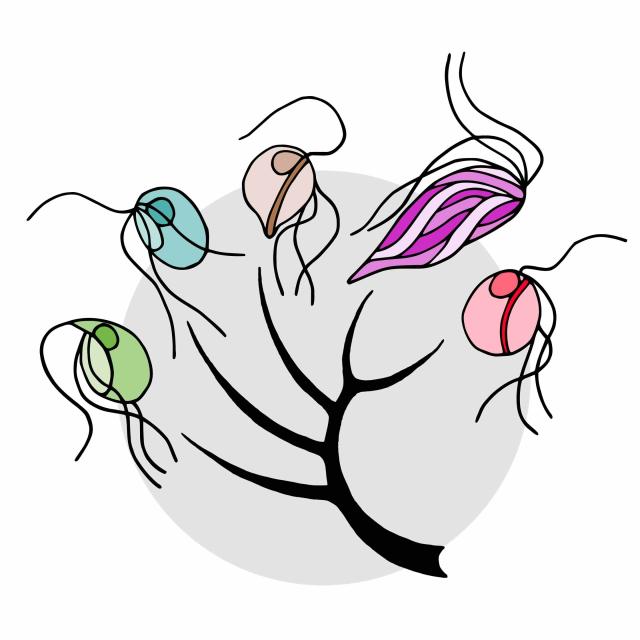
Single-celled protists in the guts of animals thrive without mitochondria, study finds
Almost all eukaryotic organisms, from plants and animals to fungi, can't survive without mitochondria, which generate chemical energy using oxygen.Science X (Phys.org)
New #ISEPpapers! The #protist #Aurantiochytrium has universal subtelomeric rDNAs and is a host for #mirusviruses: Jackie Collier et al. cell.com/current-biology/fullt…
#protists #microbes #protistology #microbiology #viruses #virology #genomics

Postdoc position in microbial OMICS and microplastics (fixed-term for 36 months) (m/f/x) at Leibniz-Institut für Gewässerökologie und Binnenfischerei
We're looking for: Postdoc position in microbial OMICS and microplastics (fixed-term for 36 months) (m/f/x) (Full or Part Time) • Neuglobsow, Stechlin, Deutschlandkarriere-igb.softgarden.io
Long-read-based genome assembly reveals numerous endogenous viral elements in the green algal bacterivore Cymbomonas tetramitiformis
Abstract. The marine tetraflagellate Cymbomonas tetramitiformis has drawn attention as an early diverging green alga that uses a phago-mixotrophic mode of nutriGyaltshen, Yangtsho (Oxford University Press)
How did #eukaryotes evolve for extreme temps? futurity.org/high-temp-eukaryo… #protists
#ExtremeEnvironments offer an unprecedented opportunity to understand #microbial #eukaryotic #ecology, #evolution, and #genome #biology: Hannah Rappaport & Angela Oliverio nature.com/articles/s41467-023…
“several lineages of #amoebae were often recovered from extremely high temperature environments. Studying those lineages may yield great insight into how eukaryotic cells can adapt to life in extremely hot environments.”
How did eukaryotes evolve for extreme temps? - Futurity
Researchers are investigating microbial eukaryotic life in extreme environments, like Lassen National Park's geothermal lake.Dan Bernardi-Syracuse (Futurity)
Hello everyone!
I’m an associate prof at Virginia Tech studying viral diversity. Lately my group has been focusing on giant viruses, but we are also interested in other protist viruses, and the role of viral endogenization in host genome evolution.
#GiantViruses #ViralDiversity #TreeOfLife #Protists #Microbiology #Bioinformatics #Evolution #Virology #Genomics
Recently we have been examining the strange and complex genes encoded in giant virus genomes!
doi.org/10.1093/femsre/fuad053
Important study from Bellas et al showing that protists have a huge diversity of endogenous DNA viruses in their genomes!
Large-scale invasion of unicellular eukaryotic genomes by integrating DNA viruses
pnas.org/doi/10.1073/pnas.2300…
And a commentary about these exciting findings from @giant_virus and myself -
Endogenous DNA viruses take center stage in eukaryotic genome evolution
Endless microbes most beautiful and most wonderful
"To reflect the importance of microbes and to create a home for microbiology research using genetics, PLOS Genetics will be launching a new section on Microbial Genetics. "
#eukaryotes #protists #evolution #anaerobes #mitochondria
From the Sunlit to the Aphotic Zone: Assembly Mechanisms and Co-Occurrence Patterns of Protistan-Bacterial Microbiotas in the Western Pacific Ocean
Giant proteins in a giant cell: Molecular basis of ultrafast Ca2+-dependent cell contraction
"The evidence suggests that the GSBP-spasmin protein complex is the functional unit of the mesh-like contractile fibrillar system, which, coupled with various other subcellular structures, provides the mechanism for repetitive ultrafast cell contraction and extension."
Paper alert 🚨
Polyketide compounds and their analogues cause shellfish poisoning, and dinoflagellates may utilize a combination of Type I multi-domain and single-domain PKS proteins to synthesize them.
'Transcriptomic analysis of polyketide synthesis in dinoflagellate, Prorocentrum lima'
#protists #MicrobialEukaryotes
doi.org/10.1016/j.hal.2023.102…
